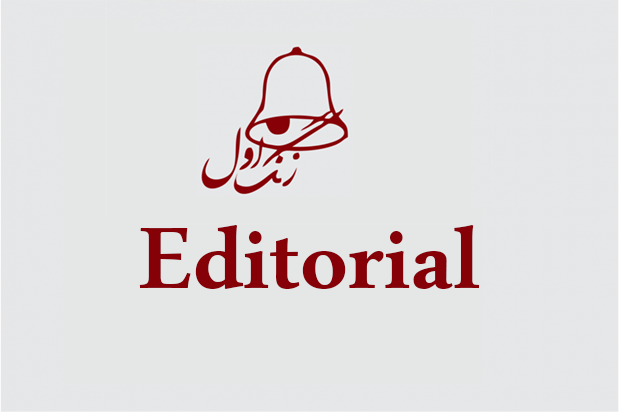The Afghan government sent a high-level delegation to Qatar on Friday, July 16, to hold talks with representatives of the Taliban while little change was seen in the group’s political stance. The Taliban delegation recently announced their conditional readiness to establish a three-month ceasefire and draft a new constitution with the Afghan government delegation in an interview Qatar. The high-level delegation from the Afghan government, which left for Qatar yesterday, sees the Taliban’s conditional readiness to discuss and agree on the two issues as an opportunity to revive the ongoing peace talks. For this reason, Abdullah Abdullah, at the head of the delegation, told reporters at Kabul International Airport that he hoped to achieve results during the trip.
The preconditions set by the Taliban for discussing and agreeing on a three-month ceasefire are among the group’s strict preconditions for peace with the government. These preconditions go back to six years ago, when the government and the Taliban first met in Pakistan. The Americans worked hard to dissuade the Taliban from these two preconditions but they did not succeed. Finally, the issue of the release of prisoners and the lifting of the sanctions list became a key part of the March 2019 agreement between the United States and the Taliban. These two preconditions can make the agreement on a three-month ceasefire unachievable just as it had stalled the whole process of the intra-Afghan peace talks. If the government does not show flexibility towards these preconditions, Afghanistan is unlikely to see a three-month ceasefire.
The Taliban’s readiness to discuss drafting a new constitution is ostensibly a sign of the group’s flexibility to mobilize the peace process. However, the Taliban have eliminated the possibility of starting work on the law, given the preconditions it has set for doing so. How is it possible for the government to suspend the current legitimate constitution and rely on the obsolete constitution of 1964? This precondition of the Taliban means demanding the surrender of the government. It is not expected that the government would accept this precondition. Thus, it is not possible to agree on a new constitution with the suspension of the applicable constitution and to administer the country with a Talibanized and obsolete constitution. Unless the political delegation of the government accepts this precondition of the Taliban and whatever else the group wants.
Representatives of the Taliban at an intra-Afghan summit ten days ago in Iran have once again opposed the “republic” principle of the regime. They have explicitly stated in the meeting that they want a “pure Islamic system” headed by an emir and elected by the “Islamic Scholars” Council. Representatives of the Taliban in the Iranian summit also called for a new constitution based on “Sharia”. Thus, it is too early to be optimistic about the change in the Taliban’s political position and to hope that a favorable agreement will emerge from the talks between the two sides in Qatar.
The Taliban is currently seeking to occupy more territory with bombs and violence. In the past two and a half months, dozens of districts have fallen to the Taliban in this way. For a group that seeks to conquer Afghanistan through war and has made significant progress, negotiation is merely a fun game aimed at engaging the government in vain.
The Taliban use the tactic of “negotiation in the shadows” in their negotiations with the government. During the months of contact with government representatives, the representatives of this group refused to hold principled negotiations for even a day. In this way, the Taliban seeks to waste time and opportunities to pursue its long-term military goals.
Given that the Taliban’s desire for peace is a false and ridiculous show, it is not expected that the visit of the high-ranking government delegation to Qatar will be able to achieve anything from the peace talks. At the same time, there is a lack of flexibility in the government, and no reasonable person finds the release of Taliban prisoners and the lifting of sanctions against the group commensurate with just a three-month ceasefire to be proportionate. The Taliban are also seeking a constitution on which to build their “emirate” under another name. A system in which general elections are prohibited and the sole decision-making authority over the country is the Islamic Scholar Council. It is natural that if the Taliban does not achieve these goals, they will continue to fight against the government until it falls. For this reason, a clear vision of peace talks is inconceivable, and one should not expect too much from the outcome of the Taliban’s negotiations with the government with such preconditions.












